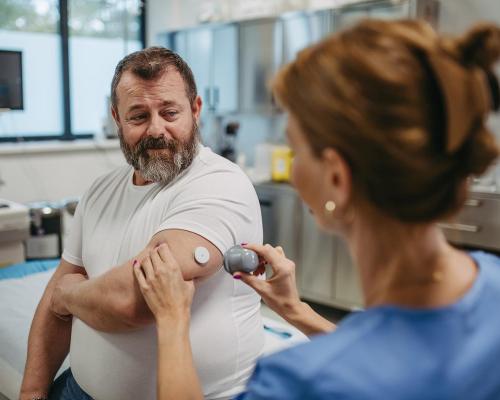see all jobs
16% of a woman's life will be spent in poor health, due to growing healthspan gap, says Vitality Research Institute
While life expectancy has increased, the extra years are often not spent in good health. Vitality Research Institute says healthy lifestyle choices earlier in life are key to changing these outcomes .
In the paper Maximising quality of life: A primer on healthspan and lifespan, the insurance company deep-dives into the challenge of people living longer, but in poorer health and details interventions which could make a difference. The report states that physical activity is foundational.
On average, in the UK, 16 per cent of a woman’s life and 13 per cent of a man’s life can now be expected to be spent in poor health.
Due to better healthcare treatment and technologies, life expectancy has grown by more than five years since 1990. Every second person in the UK can now expect to reach 84, compared to every fifth person in the 1980s.
However, healthy life expectancy – healthspan – hasn’t kept pace. Currently 7.3 million healthy years of life are lost in the UK each year.
This is adding to the NHS and social care bills, as well as leading to a loss of productivity in the workforce, especially as largely preventable chronic conditions, such as heart disease and diabetes, are becoming more prevalent.
Life expectancy between the most deprived and most affluent areas of the country currently differ by as much as 10 years, as a result of health literacy, access to healthcare and issues around cost.
Eating healthily is challenging on a low income. Research has shown that the most deprived areas of England have five times more fast-food outlets than the least deprived areas and less access to fresh food.
Wealthspan goes hand-in-hand with healthspan. This will become more of an issue going forward, with fewer workers supporting each retiree, people with insufficient funds saved for retirement, many having to retire earlier due to poor health and others living longer with a health condition.
Although the negative consequences of extended lifespan occur later in life with chronic diseases, the action to prevent them needs to happen decades earlier. The report stresses the importance of a healthy lifestyle: moderate alcohol intake; not smoking; eating five portions of fruit and vegetables a day; adhering to the WHO guidelines for exercise and sleeping seven to nine hours’ a night.
Physical activity should form the core of a preventative healthcare strategy, not only because of the benefits which come from exercising, but also because it substantially reduces the risk of depression and brings about other positive changes in behaviour, including eating more fruit and vegetables, drinking less alcohol and improved sleep.
With 74 per cent of deaths globally attributable to chronic and non-communicable diseases, Vitality’s research suggests that around 37 per cent of the total disease burden (premature death and disability) could be prevented through healthier lifestyle choices and improved metabolic risk.
Although the report urges individuals to take responsibility for their health, it also calls for employers and the government to support them.
Globally, around US$8.5 trillion, or 10 per cent of global GDP, is invested in healthcare delivery, with less than 5 per cent of the spend applied towards prevention – including areas such as health information.
Since 2014, the UK has seen a reduction in spend, in real terms, on prevention. Existing healthcare strategies have been effective in reducing the severe consequences of disease, but less effective in preventing disease in the first place.
As an example of how this plays out, between 2000 and 2019 the number of years of life lost to cancer decreased by 15 per cent, but the number of years lived with cancer increased by 21 per cent.
The report is available here
- News by sector (all)
- All news
- Fitness
- Personal trainer
- Sport
- Spa
- Swimming
- Hospitality
- Entertainment & Gaming
- Commercial Leisure
- Property
- Architecture
- Design
- Tourism
- Travel
- Attractions
- Theme & Water Parks
- Arts & Culture
- Heritage & Museums
- Parks & Countryside
- Sales & Marketing
- Public Sector
- Training
- People
- Executive
- Apprenticeships
- Suppliers




































